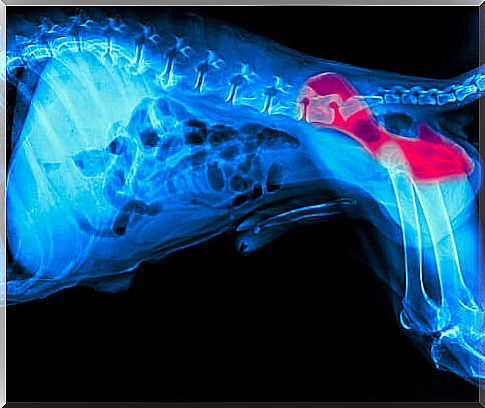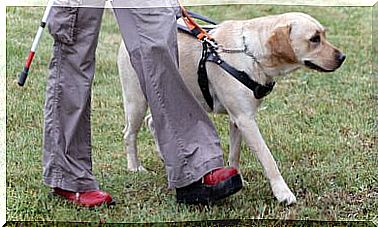Border Collies And Their Most Common Health Problems

Border collies are dogs that, from the beginning, were bred as herding dogs in the countryside between Scotland and England. And as they proved to be very intelligent, today they are still known for that ability, in addition to their intense gaze.
This is an extremely active breed of dog that works best when assigned a job, allowing it to exercise as much as it needs to while fulfilling its assigned role.
By nature, they can graze small animals and – curiously – young children. Therefore, they are good companions and guardians. In addition, they are healthy dogs that have an average life expectancy of 12 to 15 years.
Like other purebred dogs, Border Collies can suffer from several genetic diseases. Some caused by specific genetic mutations. Here is a list of common conditions.
Common health problems in border collies
Eye problems
Border collies can inherit or develop a variety of different eye conditions, some of which can cause blindness if not treated right away. Most of them can be extremely painful.

- Cataracts : It is a common cause of blindness in older border collies.
- Pannus – Looks similar to a tan on your dog’s eyeball. Cells that infiltrate darken on exposure to ultraviolet light and can lead to complete blindness.
- Collie eye abnormality : This genetically linked disease causes abnormal eye development in Border Collies. In severe cases, the disease can lead to blindness.
- Progressive retinal atrophy : An inherited disease in which the eyes are genetically programmed to go blind. This disease is not painful, but it is not curable either.
Seizures
Border collies are prone to epilepsy. This is a neurological disorder caused by irregular neuroelectric activity. Symptoms include seizures, spasms, and, in severe cases, loss of consciousness.
Patent ductus arteriosus
This is a congenital heart disorder and in many cases it can be fatal. It occurs when an artery in the heart that is supposed to close remains open.
Thyroid problems
Border collies are prone to a common condition called hypothyroidism in which the body does not make enough thyroid hormone. Treatment is usually as simple as giving replacement hormones.
Nutrient malabsorption
A genetic defect, which has a high incidence in border collies, prevents the absorption of cobalamin (vitamin B12) at the intestinal level.
If your dog has this defect, he will have a poor appetite, growth retardation, protein loss, and low red and white blood cell counts. It is treated with intravenous administration of the vitamin.
Hip dysplasia in border collies
Hip dysplasia is a progressive bone disorder that develops from genetic and environmental factors. In this disease the structure of the hip joints is deformed and prevents running, jumping and walking. It can be very painful, which generally leads to inactivity and weight gain.

Multi-drug resistance
Multi-drug resistance is a genetic defect in a gene called MDR1. If your collie has this mutation, it can affect the way his body processes different medications. This includes substances commonly used to treat parasites, diarrhea, and even cancer.
Cancer
Cancer is one of the leading causes of death in older dogs. Your collie will likely live longer than many other breeds and is therefore more prone to cancer in their golden years.
The veterinary check-up is essential
These are some of the health problems that your border collies can be exposed to. Now that you know their predisposition to specific health problems, you can implement a preventive health plan to monitor and, hopefully, prevent some risks.








